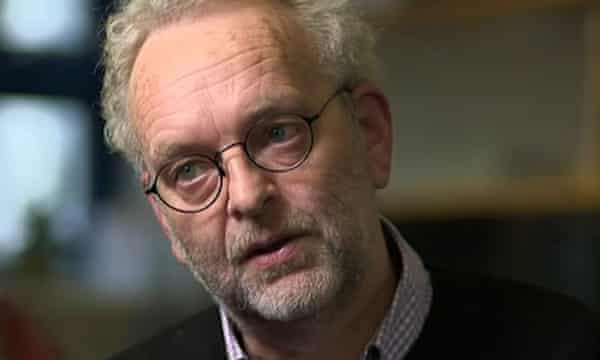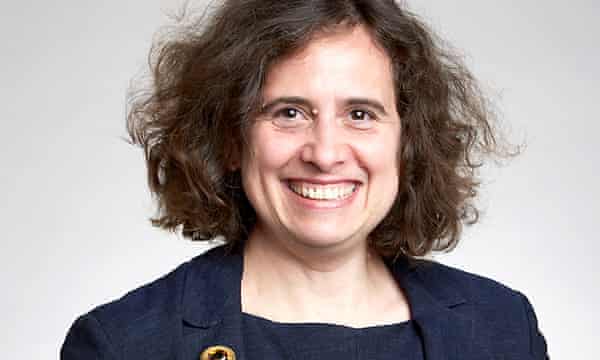The government’s drastic cut to overseas aid risks damaging the world’s ability to fight the next global health disaster and keep Britain safe, some of its own scientific advisers on Covid are warning.
In a significant escalation of the backlash against the cut, which will see major research projects cancelled this year, current and former members of the Scientific Advisory Group for Emergencies (Sage) are among thousands of academics to confront the chancellor, Rishi Sunak, over cuts affecting projects that target the main threats to human health.
Some of Britain’s leading universities told the Observer that projects attempting to reduce the risk of animal viruses passing to humans, and work examining antimicrobial resistance (AMR), both possible sources of the next global health emergency, were affected by a £120m fall in research funding from the UK Research and Innovation (UKRI) agency. The fall was triggered by the government’s controversial decision to cut overseas aid from 0.7% of GDP to 0.5%. An open letter signed by well over 3,000 UK academics and global health experts warns that the cut will hit “some of the world’s most complex and challenging global health problems”.
It adds: “Critically, the Covid-19 pandemic has made amply clear the interdependencies across our world. We well understand that health risks and vulnerabilities are shared globally, as are the solutions being developed the world over to address emerging health threats.”

Graham Medley, professor of infectious disease modelling at the London School of Hygiene and Tropical Medicine and a member of Sage, is among those to have signed the letter. He told the Observer: “People often think that all the science revealed in the past year has been done in the past year. But there has been a huge amount of activity and work to lay the foundations. This does not happen by accident. Science needs funding to keep developing. To be in the best position for the next threat – another pandemic, or rise of AMR – we need the groundwork done. Especially in those areas where the threats are most likely to arise.”
Other signatories include fellow Sage member Harry Rutter, professor of global public health at the University of Bath, and former Sage adviser Professor David Lalloo, director of the Liverpool School of Tropical Medicine. Scores of universities are represented, as well as some of the country’s leading epidemiologists.

Professor Anne Ferguson-Smith, pro-vice-chancellor for research at Cambridge University, said: “Cambridge researchers and their counterparts from a host of other universities will have to stop programmes that include predicting the next potential pandemic, enhancing food security, improving maternal health and building renewable energy sources. This work benefits not just the developing world, but all of us.”
Lord O’Neill, the Tory peer who led a government review of antimicrobial resistance, also raised concerns about the cut, warning: “This is a sign that aspects of the global Britain drive need to be worked through more thoughtfully.”
Professor Alice Gast, president of Imperial College London, said its aid funding included mapping the spread of Covid-19 across low- and middle-income countries. “The Covid crisis showed the world what we can do with long-term, strategic scientific investment,” she said. “This is not the time to retreat from British science’s role as a global force for good.”
Fiona Tomley, professor of experimental parasitology at the Royal Veterinary College, London, said that the UK research conducted in collaboration with poorer nations was vital in spotting future threats. “It doesn’t matter whether you live in a small village in Norfolk or on the outskirts of Dhaka,” she said. “If a virus starts moving around, it affects everybody.
“We look at how the world can provide the nutrition that’s needed for the world without increasing zoonotic risk [the transfer of diseases from animals to humans]. The need to supply food, the need to deal with waste, the need to have animals kept under much higher stocking densities is all really contributing to the likelihood of pathogens getting into the flocks, and secondly, changing, mutating, amplifying, and being transmitted to humans. The relevance of this research seems stark to us. I would think it was probably quite stark to anyone who thinks about it.”
UKRI chief executive Professor Dame Ottoline Leyser said: “We understand the distress caused by the cuts being made to our ODA funding for next year and the deep anxiety felt by researchers as we work carefully through this process. Given the situation in which we find ourselves, our focus is to preserve as much of the benefit as possible from the extensive portfolio of UKRI-funded ODA research and innovation.”
A Department for Business, Energy and Industrial Strategy spokesperson said: “The UK remains a world-leading aid donor. This year alone, we will spend more than £10bn to address poverty, tackle climate change, fight Covid and improve global health.
“We are working with our delivery partners, including UK Research and Innovation, to implement a new research and development settlement for 2021-22 that protects the most effective research programmes.”
This content first appear on the guardian
